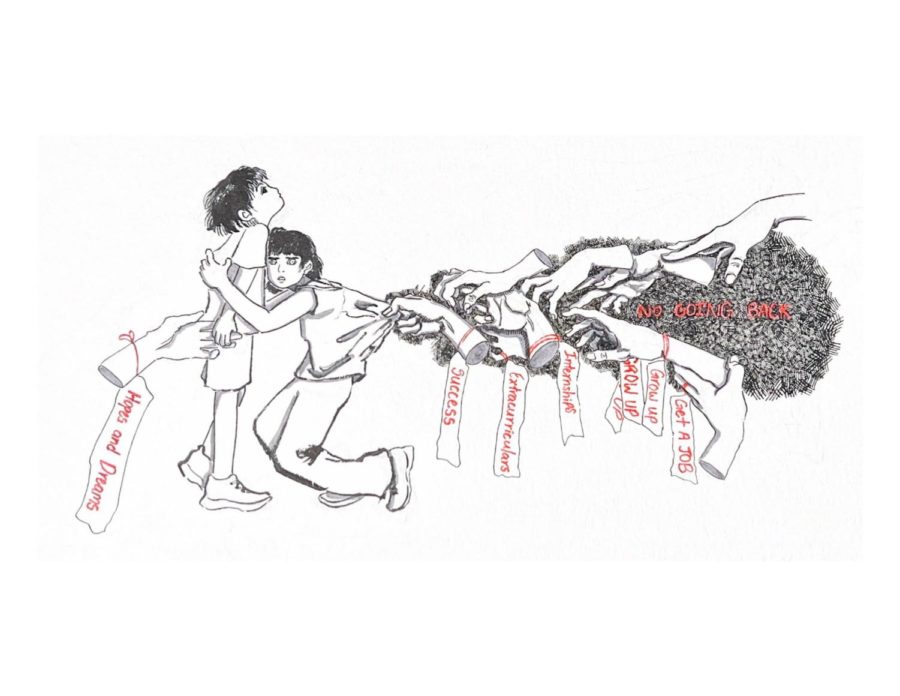When examining landmark judicial cases that could fundamentally change how the Constitution frames society, we don’t always have the benefit of hindsight. But when we do, as in the case of the Supreme Court hearing arguments for the support or vacation of Proposition 8 in California, we don’t often take advantage of it—especially when we’re dealing with questions that have to do with the fundamental rights guaranteed by the Constitution. This is an absolute shame.
Consider this: How many of us know offhand the statistics of how children of interracial families fare in school? Or how society in general is affected by interracial marriages? Or if striking down anti-miscegenation laws affects social institutions? If you’re anything like me, these questions will seem not only irrelevant, but also downright offensive. When it comes to fundamental rights, waiting for numbers seems not only superfluous, but also unfair. Consider if somebody told you they needed to wait on the data of how your choice of religion would impact society before she granted you the right to believe in it.
Unfortunately, a great deal of the conversation in the oral arguments presented before the Supreme Court on the legitimacy and constitutionality of California’s Proposition 8 focused on exactly these statistics. Justice Kennedy in particular, often considered a swing member in an otherwise equally divided Supreme Court, advanced just this sort of “wait-and-see” attitude, proposing that sociological information on the effects of same-sex marriage is required before the court settles on a decision that would affect all states, many of which are still far from reconsidering bans on same-sex marriage.
This argument implies the belief that states should be allowed to wrestle with such tough questions on their own and experiment with what road they want to take before the Supreme Court makes a ruling. That’s exactly the argument that Justice Sotomayor, one of the Court’s liberal judges, made. If that argument prevails, the cases on Proposition 8 could be dismissed. This, perhaps, would be equivalent to the Court postponing its decision to a later date, when things are much more “clear”—thanks to “sociological data” provided by states that have already approved same-sex marriage, which would make for an ironic sort of circular argument I’m still having trouble with. Here, again, hindsight would be useful. As National Journal observes, 16 states still had bans in place when the Supreme Court finally struck down anti-miscegenation laws in 1967. With such a track record, it’s highly possible that decades will pass before the Supreme Court sees fit to decide on this fundamental right, one that could have saved a lot of people a great deal of unhappiness if the power of hindsight were heeded.
All of this could be waved away if one argued that, by and large, if states don’t seem on board with same-sex marriage, it seems a tad dictatorial to rule on something most people clearly don’t want. However, there is a clear trend in the way attitudes are changing: Political support for gay marriage has burgeoned recently. The Rhode Island Senate voted to pass gay marriage legislation on Wednesday; Illinois’s Republican Senator Mark Kirk recently endorsed same-sex marriage, a good omen for a state likely to go the way of Rhode Island in May. Gay marriage legislation is on its way in the Delaware Senate as well; a spate of high-profile Republicans, such as Ohio’s Rob Portman, are changing their positions on gay marriage. Public support for gay marriage, as reported by many recent polls, seems to finally have reached a narrow majority. Times are quickly changing. It is therefore downright shocking that carping about effects takes precedence over arguments about principle—especially on an issue on which heads are slowly turning in a single direction.
Don’t be too worried, though. It seems unlikely that sociological data will suggest that same-sex parents are anything other than equally suitable to their heterosexual counterparts. And society—particularly the institution of marriage—most decidedly will not burst at the seams. Perhaps what naysayers need is a healthy dose of New Zealand M.P. Maurice Williamson, whose stirring speech to the Parliament moments before it legalized same-sex marriage addressed just such concerns: “I give a promise to those people who are opposed to this bill, right now…the sun will still rise tomorrow, your teenage daughter will still argue back with you as if she knows everything, your mortgage will not grow, you will not have skin disease or rashes or toads in your bed…. [F]or most of us life will go on.”
Kamil Ahsan is a first-year graduate student in the biological sciences division.








